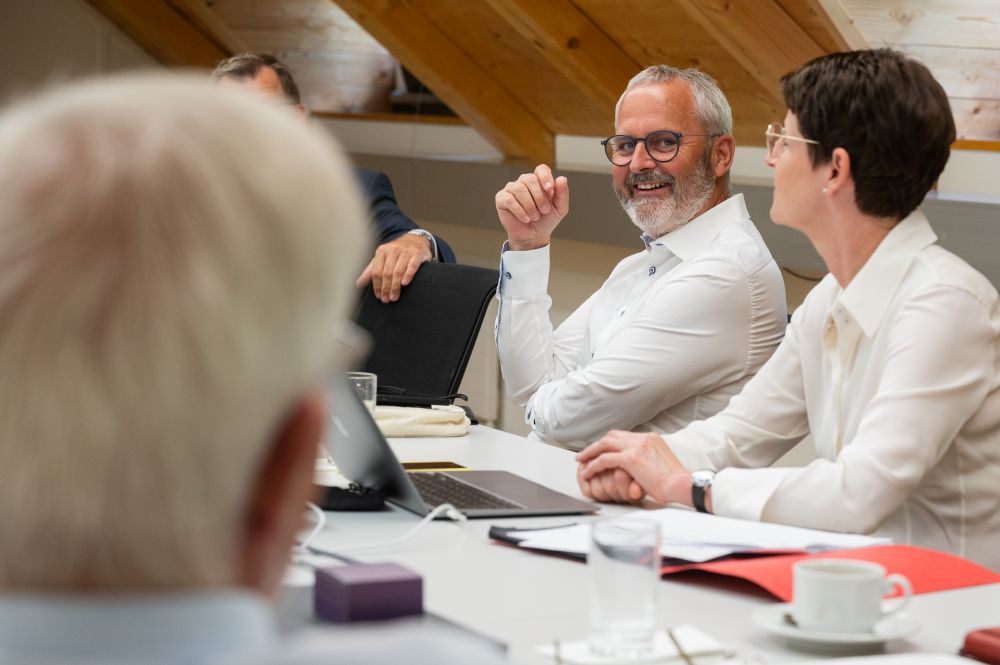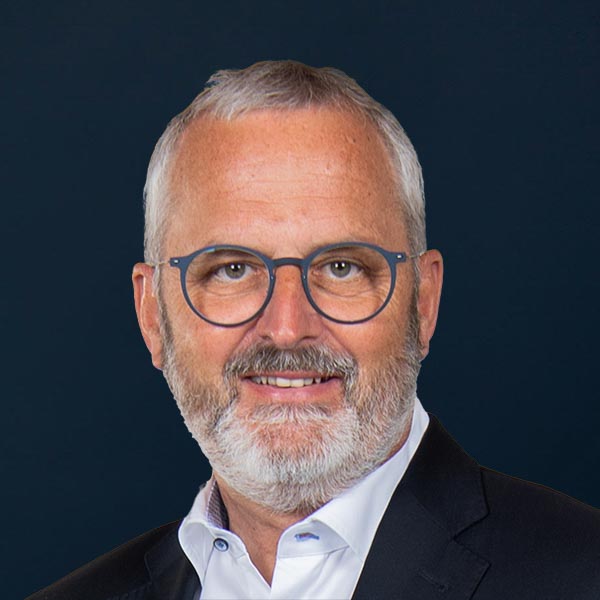Voices for Change: Celebrating diversity within the AO
My AO Access journey: Florian Gebhard

Across his 40-year AO journey—including a 2021–23 term as president of the AO Foundation Board (AO FB)—Prof Florian Gebhard, MD, has established a legacy as a renowned orthopedic surgeon and researcher and as a champion of new surgical technologies, including artificial intelligence (AI) tools like the new AO Companion app. As the world continues to change at a rapid pace, he said the AO is keeping pace not only with innovative technologies but with future-forward, human-centric initiatives like AO Access.
A native of Munich, Germany, Gebhard knew early on that his future lay in the sciences.
“There is no medical background in my family; they’re all scientists and I’m the only one who went into medicine,” Gebhard said, noting that the humanistic school he attended required students to learn Latin and Ancient Greek which are the foundations of scientific terminology. “I decided that I wanted to go for physics and chemistry as a specialty; I loved both subjects and got the best marks in them. At the time, biochemistry was supposed to be the best combination of both.”
Intent on studying biochemistry and aiming for a career in research, Gebhard was advised by Munich University to instead study medicine and then switch to biochemistry. Upon taking his final exams and earning his MD, Gebhard began compulsory Germany military service, which offered no pathway into biochemistry.”
“I performed well as an officer, so the military offered me the opportunity to start doing trauma surgery,” he recounted. “It was the perfect combination of doing a lot of sports and physical training while receiving excellent medical training. So, I agreed to the offer, started my career as an officer in the German military, and stayed there for almost 15 years.”

"The best mentor is one who loves the profession and is passionate about it: It’s more than just a job.”
Florian Gebhard
Entering a new era
After a decade and a half in the military, he moved on to Ulm University Medical Center, eventually becoming director of its department of orthopedic trauma and vice-dean of its medical faculty. It was the mid-1990s and the dawn of a new era in technology, with innovative surgical navigation and imaging systems. Among Gebhard’s first tasks at Ulm University Medical Center was testing the first navigation system for spine surgery.
“I was one of the very first users of the system and I was totally open-minded about it. I had always been interested in technology—not only medical technology—so I was fascinated from the beginning and happy to have the opportunity to be part of the development of the system to make it better,” said Gebhard.
That early immersion in the continuous improvement of cutting-edge surgical navigation—and research establishing evidence of the technology’s value—positioned Gebhard’s hospital in 2012 to take the next step into very high-end imaging systems, continue its research, and build a new surgical department with the latest interpretive imaging and computer guidance.
“I had seen the limitations of conventional imaging and experienced the challenges associated with anatomies that had been destroyed by trauma,” Gebhard said. “When we started to use state-of-the-art surgical imaging, we never had to do any revision surgery. We had the perfect setting: guidance by the computer system by doing the scans. Very quickly, we became much more precise, and our surgeries required no revisions, and this was convincing to me.
At the same time, Gebhard knew that collecting and publishing evidence were fundamental to convincing others.
“You can tell everyone, ‘Hey, this technology is cool,’ but if there’s no evidence, no one will follow you,” he emphasized.
‘Welcome to the family’
The AO offered another avenue for Gebhard to contribute to improving patient outcomes, though he didn’t know that when—during his military service—he was dispatched to an AO hand surgery course in the late 1980s.
“That was my first AO course and I was so fascinated by the AO content and how it was delivered,” Gebhard said. “It was very organized and structured, yet from the beginning I felt that I was not just a student but a part of a group—a peer. It was like being with friends: ‘Welcome to the family’.”
He quickly learned that being part of the AO family meant answering the call for expert faculty and, just two years later, he found himself teaching on the world stage at the AO’s flagship annual event, the AO Davos Courses.

"AO Access ultimately helps the AO because no company, society, or organization worldwide can survive without diversity. Before AO Access, there was the external perception that we were an old men’s club: old, male, and gray-haired. We definitely are not that anymore.”
Florian Gebhard
The importance of mentorship
Over the course of his AO career, Gebhard worked alongside AO luminaries who became his personal heroes: mentors like AO founders Peter Matter and Thomas Ruedi who inspired him.
“At that time, Peter Matter did the live surgery at the AO Davos Courses and as I watched him work, I said, ‘Okay, that’s what I want to be very quickly,” he said, underscoring the importance of mentorship. “A good mentor is someone who has a lot of experience and the time to respond to and take time for mentees. The best mentor is one who loves the profession and is passionate about it: It’s more than just a job.”
At the AO, mentorship is about more than just developing surgical skills. It’s also about developing nonclinical competencies to improve patient care and outcomes, boosts surgeons’ careers and ultimately benefit their personal lives. The AO Access Mentorship Program is a gateway to professional growth, personal skill development, and the opportunity to connect with peers and AO leaders through carefully developed, continuing medical education-accredited online learning.
Technology continues to evolve
Gebhard could not have predicted that his first AO course as a student, quickly followed by his first AO Davos Courses experience as faculty, would eventually lead him to the organization’s top ranks, culminating with a term as AO President from 2021 to 2023. His presidency was defined by the AO’s efforts to bring innovative, technological advances into the operating room while keeping the patient center stage.
Upon completing his term in 2023, Gebhard became the AO FB’s representative to the AO Access Steering Committee from 2023 to July 2025. He said the AO today looks different from the AO he joined 40 years ago—and from the AO in 2020 when AO Access began.
Before 2020, we didn’t talk about it [diversity, inclusion, and mentorship]. Today, there is much more awareness. These topics are much more part of our governance meetings,” he said. “I can—for example—see more woman surgeons being engaged in the AO and becoming AO Faculty than before AO Access was established.”
That’s important, he said, because diversity is the way of the future.
“AO Access ultimately helps the AO because no company, society, or organization worldwide can survive without diversity,” he asserted. “Before AO Access, there was the external perception that we were an old men’s club: old, male, and gray-haired. We definitely are not that anymore.”
You might also be interested in:
- Reading the complete voices for change series
- Joining the AO Access Mentorship Program
- Listening to the AO Access to success podcast

